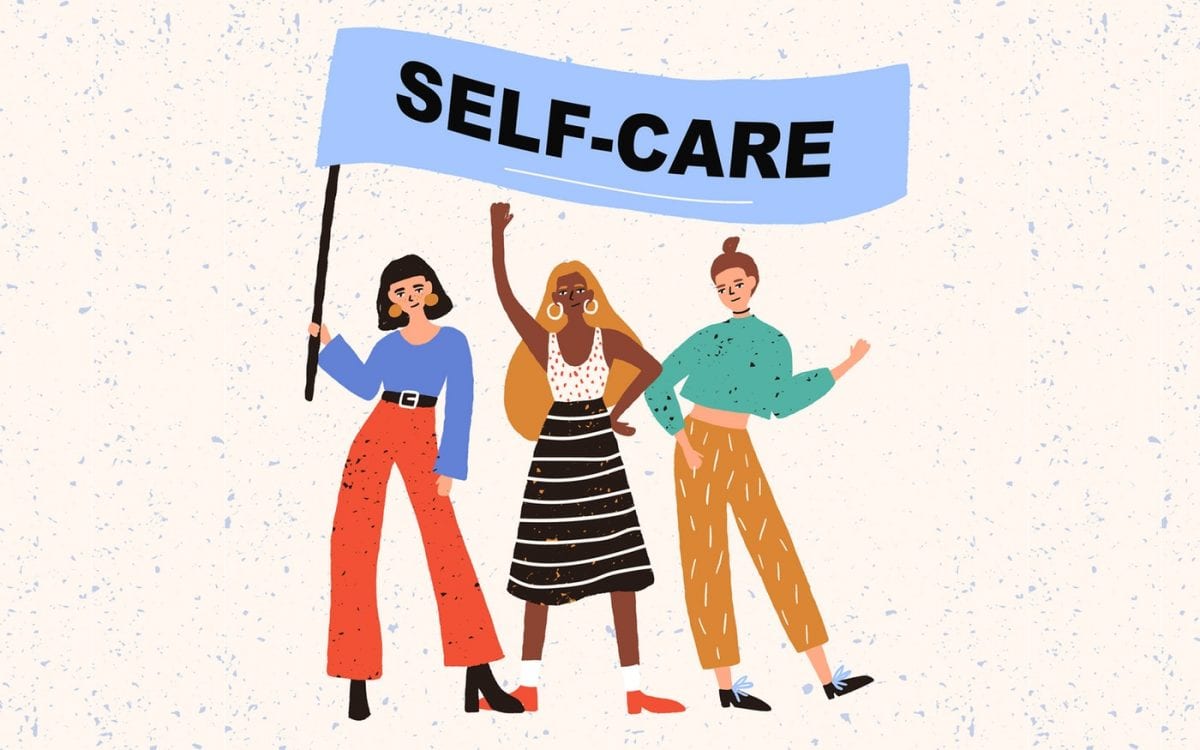Wondering why emotional self-care is important? Take better care of yourself and resist negative people and things with our emotional self-care checklist.
Have you been feeling run down as of late?
Perhaps you’ve been going full speed ahead. Pushing yourself with work, taking care of the kids, pets, and everything in between. In case you forgot, you need to take care of yourself too!
Don’t worry; you’re not alone in forgetting about self-care. It’s simple to get wrapped up in everything and everyone else that your needs fall by the wayside.
If this sounds familiar, then it’s about time you step it up and practice emotional self-care.
Believe or not, but you’re not selfish for saying “no,” and making time for yourself!
Here are seven ways to start practicing self-care immediately.
1. Stick to Healthy Boundaries
Feeling exhausted can happen when you haven’t set good boundaries.
Work harder to do what’s best for you without succumbing to believing in someone else’s opinions. In other words, don’t try to please everyone and feel bad for having your convictions.
You know your comfort level, and it’s up to you to do whatever you need to feel safe.
Place an imaginary bubble around yourself and don’t allow it to break. If and when it does, take the necessary steps to take care of yourself.
You should never feel guilty for telling someone that they did something that made you upset.
By being open, you are letting them know that you have boundaries. If a friend or family member can’t understand that, then they don’t have a right to be in your life.
2. Stop Saying I’m Sorry (Unless You Mean It)
If you’re a people pleaser, then saying “I’m sorry” is a common phrase of yours.
But saying “I’m sorry” all the time isn’t a good habit to have, mainly if something wasn’t your fault.
People often say, “I’m sorry” because they’re afraid of hurting someone’s feelings. And, if we’re honest, they’re sometimes fearful of being rejected.
If you’re continually apologizing, then you’re not setting good boundaries. And you’re not taking care of your emotions.
Stop putting so much emphasis on what others think of you. Be true to yourself without having to apologize.
It’s better if you only say “I’m sorry” when you’ve made a mistake. Instead of saying this common phrase, express your emotions in other ways.
3. Don’t Succumb to the Pressure
If you had a tough week and want some time away, that’s okay! You deserve to relax and kick back after being under a lot of stress with a little self-care .
There may be others who don’t understand that you need alone time. Your significant other may expect you to make dinner every night. Instead, suggest you get take-out food once a week so you can take a breather.
You know how to recharge your batteries. And it’s fine to say no once in a while!
You may also have an extroverted friend occasionally coax you into having fun. If a good book is calling your name, don’t worry about them. Do what you want to do!
4. Establish Strategies That’ll Help During Difficult Times
Certain people and circumstances will trigger your emotions throughout your life. These triggers will either be good or bad.
Instead of letting negative triggers get you down, have a mental toolbox ready.
For instance, if a loved one passed and their birthday makes you miss them, plan something special. You could go to their favorite place by the river and reflect on your memories together. There are healthy ways to process your grief instead of being angry.
If you sometimes get overwhelmed at work, why not go ahead and take a mental health day? If you’re too overwhelmed, it can wreak havoc on your productivity. Taking time away to gather your thoughts and decompress is an effective strategy.
Having a plan for when things get emotionally taxing is a healthy way to manage your emotions.
5. Don’t Be Afraid to Feel Things
Are you more emotional than you’d like to be?
Learn how to embrace your emotions and feel how you’d like without judgment.
But it would be best if you healthily processed your emotions. That means don’t do activities like overdrinking or overeating to deal with emotions.
A healthy way to feel things is by first acknowledging them. Then, take a pause, followed by applying methods to help you cope.
There are many ways to feel better, such as taking a bubble bath or writing in a journal.
Healthily process your emotions, and then you’ll be able to move forward.
6. Embrace Creativity
Develop healthy emotions by embracing the creative person within you.
If you don’t think you’re creative, think again! There are many ways to use your imagination. You don’t necessarily have to be a famous artist.
Here are easy ways to express your creativity:
- Try a new aerobic activity to sharpen mental clarity
- Listen to an inspiring podcast
- Take a common object and use it in new ways
- Dabble in painting (even if you aren’t an expert)
Discover what makes you happy. You’ll become more creative by making a habit of doing activities that help you feel alive.
7. Practice Positive Self-Talk
Listen to how you speak to yourself mentally.
You may have a bad habit of being hard on yourself. If that’s the case, learn how to love yourself. It’s important to give yourself plenty of compassion!
One way to improve your self-talk is to ask yourself if this is how you would talk to someone you love. The answer will likely be no, and that means you need to change that!
Give yourself a pep talk, and remind yourself how incredible you are. Being confident in yourself is an excellent way to take care of yourself emotionally.
In Conclusion
Practicing emotional care takes practice. But it’s certainly something that pays off. After all, it’s hard to care for others when you can’t even show up for yourself!
Remember, being there for yourself means not punishing yourself for making errors. You’re only human, so ease up when you make a mistake!
Make sure you’re getting away to process your emotions and regroup. Only then will you feel happy and free.
Author Bio
Caitlin Sinclair is the Property Manager at Azure (CA) and has five years of experience in property management and many years in Customer Service. She shares her passion for her community in all that she does and thrives at making Azure the place to call home for current and future residents.









1 Comment
Comments are closed.